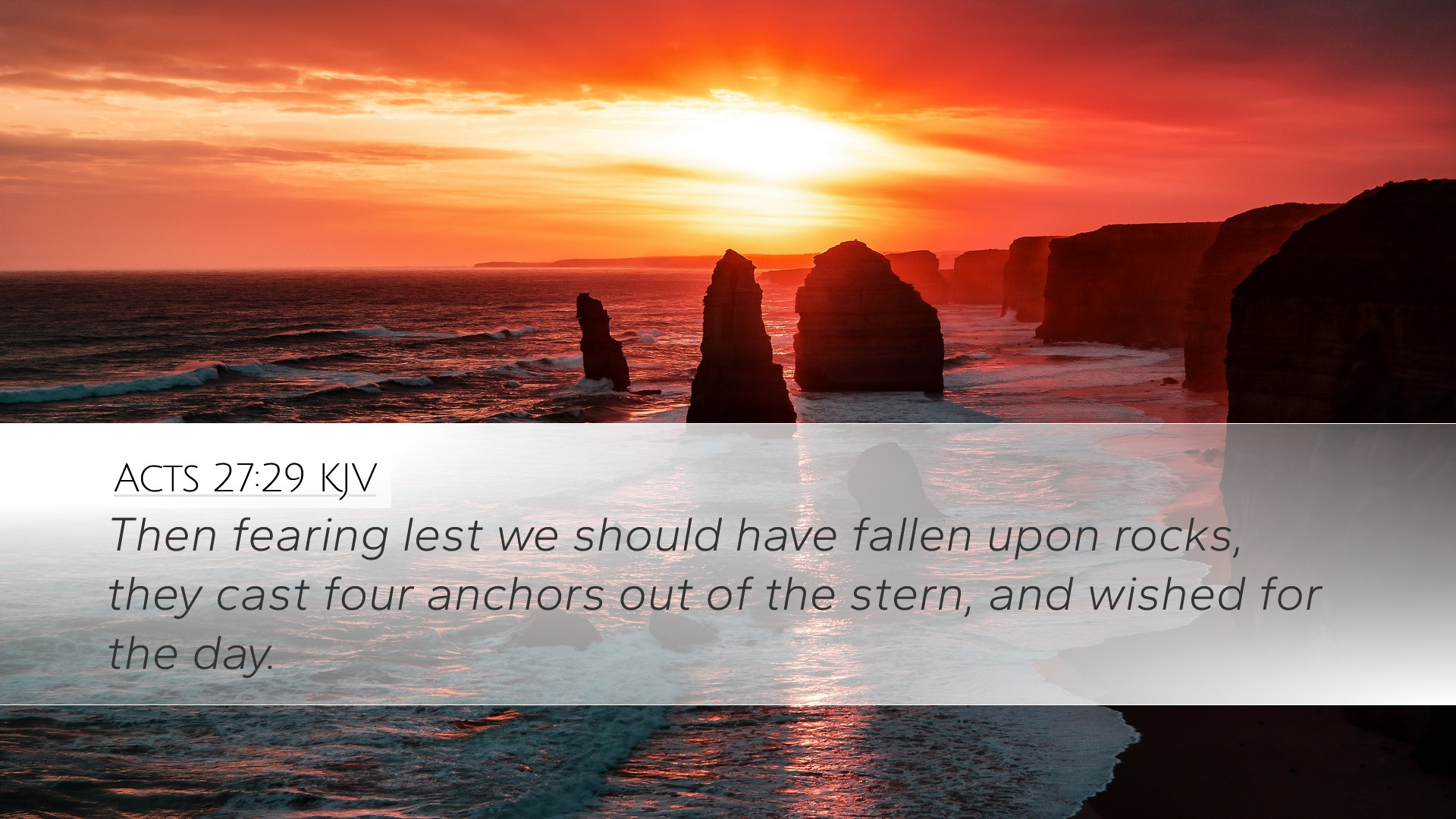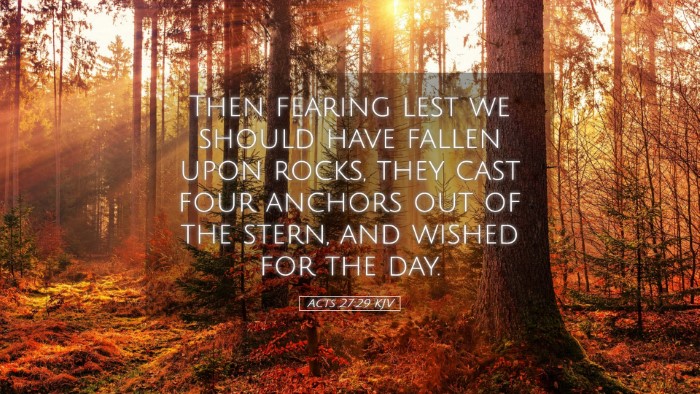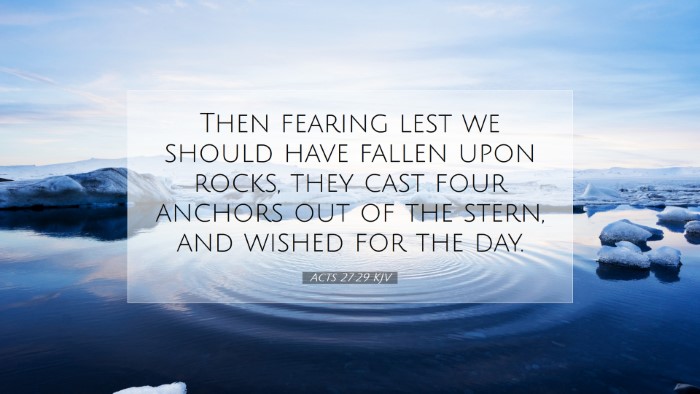Commentary on Acts 27:29
Bible Verse: "Then fearing lest we should have fallen upon rocks, they cast four anchors out of the stern, and wished for the day." (Acts 27:29, KJV)
Introduction
This verse marks a critical moment in Paul's voyage to Rome, illustrating the fear and desperation of the crew aboard the ship. Amidst a raging storm, the act of throwing out anchors signifies both a physical and spiritual struggle faced by those on the ship. Caring for their lives, they sought reassurance in the stability offered by the anchors, just as believers anchor their faith in Christ amid life's tempests.
Historical Context
In the backdrop of Acts 27, we find Paul, the Apostle, imprisoned and on his way to Rome. The journey exemplifies divine providence, where God uses even the direst circumstances to bring His purposes to fruition. The adverse conditions at sea were emblematic of the turbulence Paul faced as he served the Lord, emphasizing the reality of faith amid struggles.
Commentary Insights
Matthew Henry's Perspective
According to Matthew Henry, this verse highlights the fear of the sailors as they confront the dangers of the sea. Their decision to cast four anchors reflects their instinctive desire for stability in the midst of chaos. Henry points out that while they sought to control their fate through physical means, it was ultimately their reliance on God’s providence that would safeguard their lives. The act of wishing for daybreak symbolizes hope and anticipation for relief, aligning with the Christian belief in hope amid trials.
Albert Barnes' Interpretation
Albert Barnes elucidates the strategic significance of the anchors in this narrative. Anchors serve as a metaphor for the steadfastness of faith. Barnes observes that the sailors were not only concerned about the ship's safety but also the uncertainty that night brought. The "wishing for the day" implies a yearning for clarity and reassurance. This highlights the psychological aspects of faith where believers cling to the hope of dawn, reminding them of the certainty of God's presence and promises when darkness envelops them.
Adam Clarke's Analysis
Adam Clarke delves into the theological implications of the act of throwing anchors. He suggests that four anchors symbolize completeness and security—a notion echoed throughout Scripture. Clarke emphasizes that although the physical act was necessary for the sailors’ survival, it is the spiritual anchors (such as faith, prayer, and hope) that sustain believers amidst life's storms. He draws parallels between the struggle of the sailors and that of Christians, reinforcing that, just as the sailors sought safety in the anchors, believers find their safety in Christ.
Theological Reflection
The act of casting anchors signifies more than just a nautical maneuver; it represents the believer's attempt to find stability and guidance when faced with life's uncertainties. In moments of fear, the eagerness for dawn provides a compelling message about hope and trust in God's provision. Each anchor can be seen as a means by which God holds us steady through life's storms: the anchor of prayer, the anchor of Scripture, the anchor of fellowship, and the anchor of faith. Pastors and scholars alike are called to reflect on how these anchors strengthen the church in facing modern-day trials.
Practical Applications
- Emphasizing Hope: As pastors, teaching congregants about the power of hope is essential, especially when trials seem overwhelming. Remind them of having faith that "the night is always darkest before the dawn."
- Encouraging Faith Anchors: Encourage believers to develop their anchors—prayer, community, and the Word, ensuring they do not drift during tumultuous times.
- Navigating Turbulence: Use this passage to help counsel individuals going through storms in their lives, offering the message that while anchors are necessary, it is God who ultimately steers the ship.
Conclusion
Acts 27:29 serves as a profound reminder of the human struggle against chaos, underscoring the necessity of anchors in life’s storms. By blending the insights of historical commentaries, we appreciate how the experiences of the early church echo in our struggles today. The desire for light amidst darkness speaks to the universal need for hope, inviting all believers to remember that Christ is our ultimate anchor in every storm.


